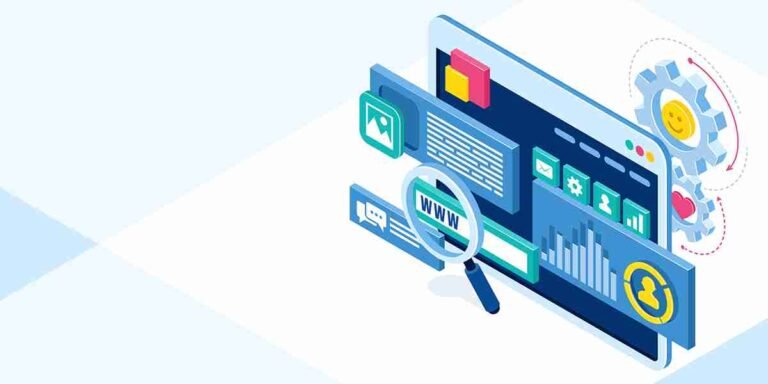Unlocking Business Insights with Data Science and Big Data

In today’s data-driven world, businesses are increasingly turning to data science and big data to gain a competitive edge. Consequently, by unlocking valuable business insights, organizations can make smarter decisions and optimize operations, thereby enhancing customer experiences. This article explores how data science and big data can be leveraged to transform business strategies and drive success.
Data Science and Big Data
Data science involves extracting knowledge and insights from structured and unstructured data using scientific methods, processes, algorithms, and systems. Meanwhile, big data refers to the vast volumes of data generated every second from various sources, including social media, IoT devices, and transactional systems. Together, they offer a powerful combination for businesses aiming to harness the full potential of their data.
Benefits of Leveraging Data Science and Big Data
- Improved Decision-Making:
- By analyzing large datasets, businesses can uncover patterns and trends that inform strategic decisions. For instance, predictive analytics can help forecast market trends, enabling companies to stay ahead of the competition.
- Enhanced Customer Insights:
- Understanding customer behavior is crucial for personalized marketing and improving customer satisfaction. Furthermore, using data science, businesses can analyze customer data to create detailed profiles and deliver targeted campaigns.
- Operational Efficiency:
- Data science and big data analytics can streamline operations by identifying inefficiencies and areas for improvement. As a result, businesses can optimize supply chains, reduce costs, and improve overall productivity.
- Risk Management:
- Analyzing data can help identify potential risks and vulnerabilities. For example, financial institutions use data science to detect fraudulent activities and mitigate risks effectively.
- Innovation and Development:
- Leveraging big data can drive innovation by uncovering new opportunities and insights. Moreover, companies can use data to develop new products and services that meet evolving customer needs.
Key Strategies for Leveraging Data Science and Big Data
- Data Collection and Integration:
- Collecting data from various sources is the first step. Therefore, it’s essential to integrate data from different departments and systems to create a comprehensive dataset for analysis.
- Advanced Analytics:
- Utilizing advanced analytics techniques such as machine learning, artificial intelligence, and predictive modeling can reveal deeper insights. In fact, these tools can analyze vast amounts of data quickly and accurately, providing actionable insights.
- Data Visualization:
- Visualizing data through charts, graphs, and dashboards makes it easier to understand complex information. Consequently, effective data visualization helps stakeholders grasp insights quickly and aids in better decision-making.
- Building a Data-Driven Culture:
- Fostering a data-driven culture within the organization is crucial. By encouraging employees to rely on data for decision-making, businesses can ensure that insights are utilized effectively across all levels.
- Investing in the Right Technology:
- Leveraging the right tools and technologies is vital for successful data science initiatives. For example, investing in scalable and robust data platforms ensures that businesses can handle large volumes of data efficiently.
Real-World Examples of Personalization in IT Services
- Retail Industry:
- Companies like Amazon and Walmart use big data analytics to manage inventory, forecast demand, and personalize shopping experiences. By analyzing customer data, they can offer product recommendations and optimize pricing strategies.
- Healthcare Sector:
- Healthcare providers use data science to predict patient outcomes, personalize treatments, and improve operational efficiency. For instance, predictive analytics can help in early disease detection and prevention.
- Financial Services:
- Banks and financial institutions leverage big data for fraud detection, credit scoring, and risk management. Moreover, analyzing transaction data helps in identifying suspicious activities and enhancing security measures.
Challenges in Leveraging Data Science and Big Data
While the benefits are significant, businesses also face challenges in leveraging data science and big data:
- Data Quality and Management:
- Ensuring data quality and managing vast amounts of data can be challenging. Thus, implementing robust data governance practices is essential to maintain data accuracy and integrity.
- Skill Shortage:
- There is a growing demand for skilled data scientists and analysts. Therefore, investing in training and development can help bridge the skill gap within the organization.
- Privacy and Security:
- Handling sensitive data requires stringent privacy and security measures. For example, complying with data protection regulations and implementing strong cybersecurity practices is crucial.
Conclusion
Unlocking business insights with data science and big data is a transformative approach that can drive significant value for organizations. By leveraging advanced analytics and fostering a data-driven culture, businesses can make informed decisions, enhance customer experiences, and achieve operational excellence. As the digital landscape continues to evolve, embracing data science and big data will be key to staying competitive and achieving long-term success.
For More Information Visit Your Website : Mountain Techno System














